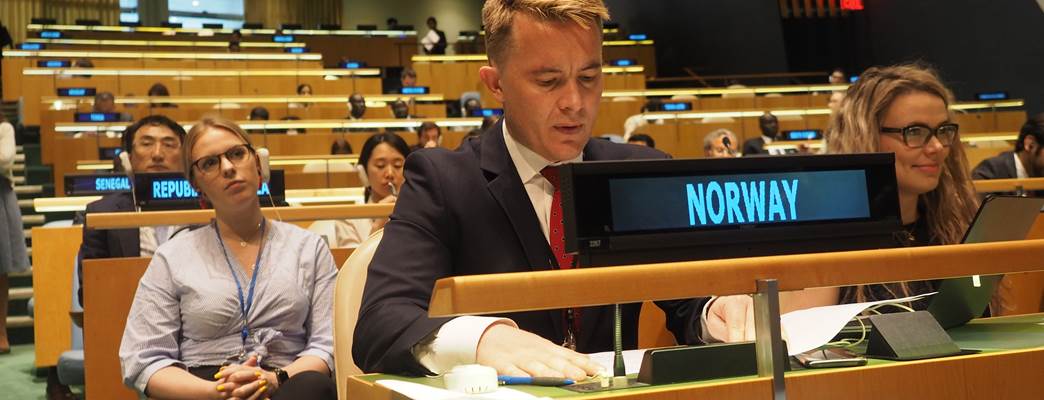Let me start by thanking you, Mr. Secretary General, for your efforts in strengthening the capabilities of the United Nations system to assist Member States in implementing the UN Global Counter Terrorism Strategy.
Let me also thank the PGA’s office for convening this important meeting and for working so tirelessly and expeditiously to ensure the adoption of today’s resolution, which establishes the UN Office on Counter Terrorism.
More than ever, we need an effective, cohesive and adaptable UN that is equipped to counter and tackle the challenges posed by terrorism and violent extremism. The creation of the UN Office on counter terrorism represents a major step forward in this regard.
The office, headed by an Under Secretary General with a direct reporting line to the Secretary General, will give the UN more coherence and provide for better strategic leadership and external and internal communication.
It will improve the UN System’s ability to implement all four pillars of the Global Counterterrorism Strategy in a cohesive and coordinated way. The UN’s ability for resource mobilization and support of member states through capacity building efforts and sharing of best practices will be manifestly enhanced.
Since the UN adopted its Global Counter Terrorism Strategy in 2006 there has been too much emphasis on combating terrorism by military and security means. We must also address the root causes and upstream factors of violent extremism, as highlighted by the Plan of Action to Prevent Violent Extremism.
The responsibilities for the USG and the office will be to ensure an appropriate balance and emphasis across all four pillars of the UN Global Counter Terrorism Strategy. We therefore appreciate that the mandate of the CT Office contains a reference to the Prevention of Violent Extremism agenda. As part of its efforts to counter-terrorism and violent extremism the office must thus work to advance peace and security, sustainable development, human rights and the rule of law. The office must promote the institutionalization of PVE across the UN system.
We also believe that the office needs to partner and interact with civil society and other non-governmental stakeholders in order to be effective. One key qualification for the USG position should be that he or she has experience in both development and security as well demonstrated ability to work inclusively, cooperating effectively with a range of stakeholders including civil society actors.
In closing, let me again thank the Secretary General for his commitment to improving the UN’s ability to counter terrorism and violent extremism. We look forward to working with you and member states to implement your vision.
